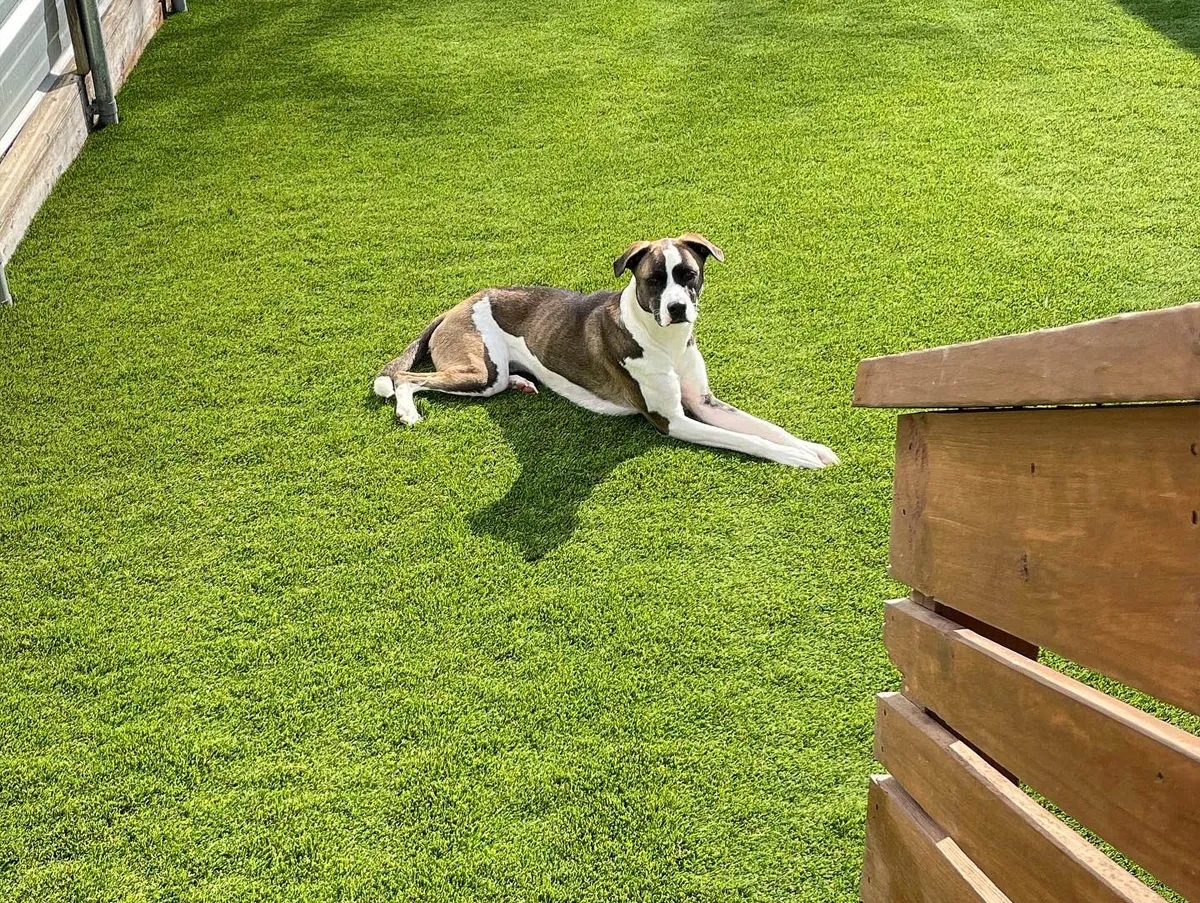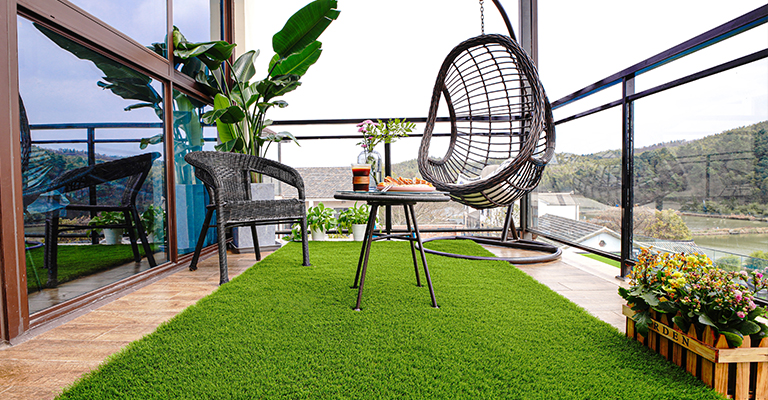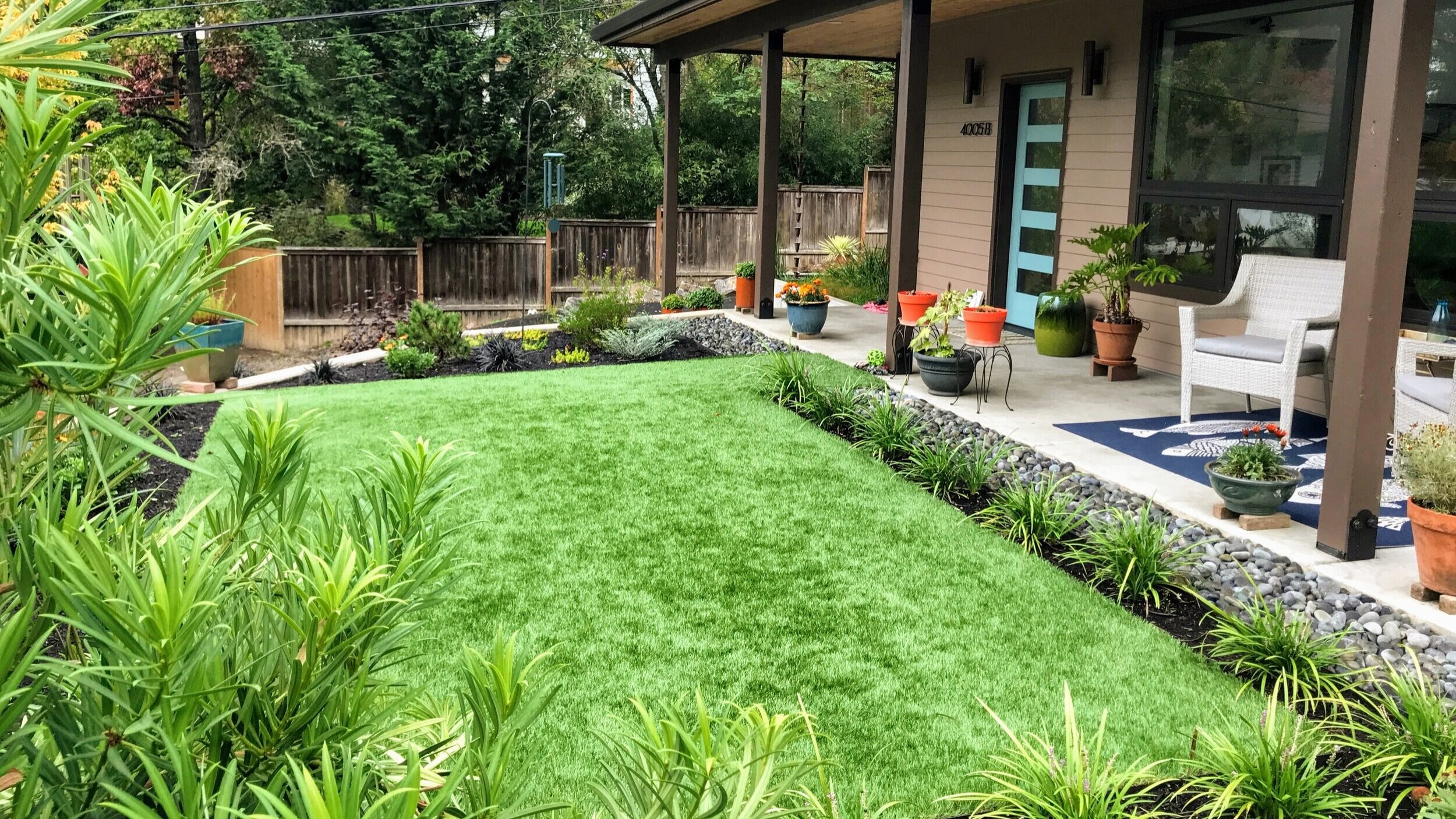Tailored Turf Installation Phoenix AZ for Residences, Companies, and Recreational Spaces
Tailored Turf Installation Phoenix AZ for Residences, Companies, and Recreational Spaces
Blog Article
Look Into the Environmental Perks of Opting for Synthetic Grass Solutions
The fostering of artificial grass options offers an engaging opportunity to deal with pressing ecological obstacles. By dramatically reducing water usage and reducing the application of dangerous chemicals, these choices not just advertise lasting landscape design yet also protect local environments.
Water Preservation Perks
Among one of the most substantial benefits of synthetic grass is its capacity to preserve water. Typical yard yards call for considerable irrigation, particularly in areas prone to drought or water restrictions. On the other hand, synthetic grass does not require watering, dramatically lowering the total demand for water resources. This function is particularly useful in arid areas where water scarcity is a pushing worry.
By getting rid of the demand for routine watering, artificial grass contributes to sustainable landscape techniques and assists minimize the environmental influence of excessive water usage. The preservation of water extends to the decrease of drainage, which can lead to soil erosion and river air pollution.
Additionally, the installment of synthetic grass permits homeowners and towns to designate water sources much more effectively, concentrating on essential uses such as drinking water and farming. The change in the direction of synthetic grass not just advertises liable water usage however likewise lines up with more comprehensive ecological objectives aimed at preserving natural deposits.
As neighborhoods increasingly focus on sustainability, the water conservation benefits of synthetic grass provide an engaging situation for its adoption in business and residential landscape design jobs.
Decreased Chemical Usage
The transition to synthetic grass dramatically reduces the reliance on chemical treatments generally utilized in all-natural yard maintenance. Conventional grass management generally entails the application of herbicides, pesticides, and fertilizers to advertise growth and control insects. These chemicals can pose dangers to human wellness, neighborhood wildlife, and the environment, contributing to soil and water contamination.
In contrast, synthetic grass removes the demand for these unsafe substances. By decreasing the launch of artificial substances right into the community, fabricated lawn promotes much healthier soil and water systems.
In addition, the absence of chemical runoff related to synthetic grass setups helps secure neighborhood waterways from air pollution, supporting marine life and keeping biodiversity. Arizona artificial turf. As areas increasingly focus on lasting practices, going with synthetic turf offers a sensible service that straightens with environmental conservation objectives. Through this shift, homeowner can appreciate lush green areas without jeopardizing eco-friendly health and wellness, paving the means for a more lasting future
Lower Carbon Impact

Moreover, the installation of synthetic grass can result in significant water conservation. All-natural lawns require considerable quantities of water for irrigation, which not only includes to the carbon impact connected with water extraction and treatment however also pressures regional water sources. In comparison, synthetic grass needs marginal maintenance, requiring no watering, thereby considerably lowering water use and its connected power costs.
Furthermore, the longevity of synthetic grass adds to its lower carbon effect. With a life-span of approximately 15 years or even more, the demand for regular substitutes is lessened, causing less waste and lower energy usage in manufacturing and dealing with standard yard choices. On the whole, synthetic grass offers a lasting alternative for eco aware landscape design.
Environment Preservation
Habitat preservation is an essential consideration in the discussion over landscaping choices, specifically when comparing synthetic turf to natural lawn. All-natural grass lawns often call for considerable upkeep, including the use of chemicals, plant foods, and herbicides, which can negatively impact local environments. These chemicals can seep right into the dirt and rivers, damaging native plants and fauna and interrupting local environments.
Man-made lawn gets rid of the demand for dangerous chemicals, thus shielding close-by wild animals and keeping the honesty of bordering ecosystems. The setup of synthetic grass can lead to the conversion of former lawn areas into more biodiverse landscapes, such as pollinator yards or indigenous plant locations, which can sustain neighborhood wild animals.
Inevitably, the change to synthetic grass not just preserves water and minimizes upkeep initiatives yet additionally fosters a much more harmonious relationship between human activities and the natural environment, promoting habitat preservation in the process.
Long-Term Sustainability
Long-term sustainability is an essential consider assessing the benefits of synthetic grass over typical yard yards. Among one of the most significant benefits of synthetic grass is its sturdiness; it can last up to 15-20 years with marginal upkeep, whereas all-natural lawn needs frequent reseeding and substitute. This durability reduces the need for consistent resources, such as water, plant that site foods, and pesticides, which are essential for keeping a healthy turf lawn.
Furthermore, synthetic lawn contributes to a decrease in carbon discharges related to grass care tools. Conventional grass typically call for gas-powered mowers, leaners, and blowers, all of which add to air pollution. Phoenix turf companies. On the other hand, man-made turf gets rid of the demand for such equipment, advertising a cleaner setting
Furthermore, the manufacturing of artificial grass significantly utilizes recycled products, enhancing its sustainability profile. As makers take on environment-friendly practices, the environmental impact of synthetic grass remains to decrease.

Final Thought
The adoption of synthetic grass remedies offers substantial ecological benefits, consisting of significant water conservation, reduced reliance on damaging chemicals, and a reduced carbon footprint. Additionally, synthetic grass help in maintaining all-natural environments by lessening land disruption and promoting long-term sustainability through the use of durable materials. Collectively, these elements highlight the potential of synthetic grass to add positively to environmental wellness and use a feasible option to traditional landscape design methods in a progressively resource-conscious world.
In contrast, fabricated lawn does not require watering, significantly reducing the general need for water sources. By reducing the launch of synthetic compounds right into the community, artificial lawn promotes much healthier soil and water systems.
Furthermore, the installment of fabricated grass can result in substantial water preservation. In comparison, use this link synthetic lawn requires marginal maintenance, needing no watering, thereby substantially minimizing water usage and its linked energy costs.

Report this page